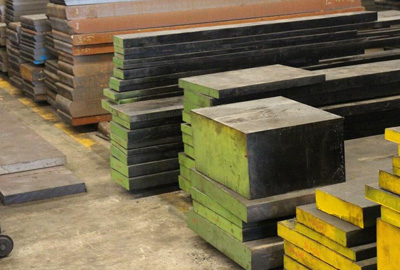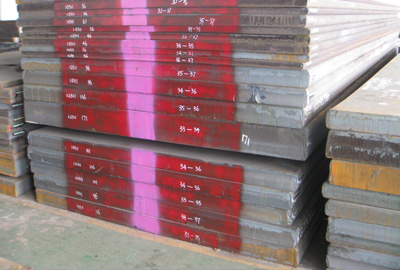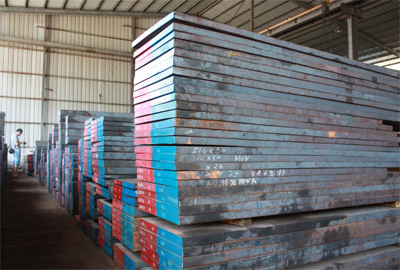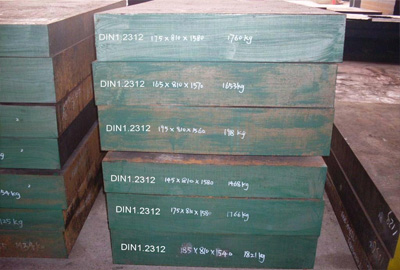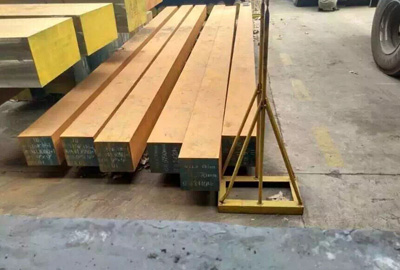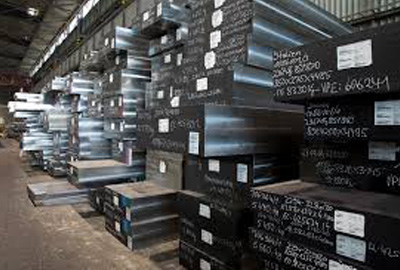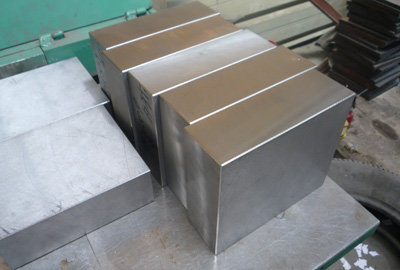Mat.No. 1.2738 HH, AISI P20 Mod.
Short Description:
Designation by Standards Mat. No. DIN EN AISI 1.2738 HH - - P20 Mod. Chemical Composition (in weight %) C Si Mn Cr Mo Ni V W Others 0.28 max. 0.40 1.50 1.30 0.50 1.00 0.15 - - Description This steel is in the category generally labelled as Mould Steels. Nickel, chromium and molybdenium are the alloying elements for hardness and toughness. Cold work tool steel with good machinability, excellent polishability, suitable for texturing. Improved t...
Product Detail
FAQ
Product Tags
Designation by Standards
| Mat. No. | DIN | EN | AISI |
| 1.2738 HH | - | - | P20 Mod. |
Chemical Composition (in weight %)
| C | Si | Mn | Cr | Mo | Ni | V | W | Others |
| 0.28 | max. 0.40 | 1.50 | 1.30 | 0.50 | 1.00 | 0.15 | - | - |
Description
This steel is in the category generally labelled as Mould Steels. Nickel, chromium and molybdenium are the alloying elements for hardness and toughness. Cold work tool steel with good machinability, excellent polishability, suitable for texturing. Improved through hardenability compared to Mat.No. 1.2738, especially for bigger parts.Applications
Typically used for relatively low temperature applications such as die casting dies and injection moulds, synthetic plastic moulds dies, for large moulds e. g. for dashboards, door inlays, waste bins, TV cases and similar.Hardness as delivered 1.2738 standard vs. 1.2738 HH
1.2738 standard: 280 – 325 HB
1.2738 HH: 320 – 360 HBPhysical properties (avarage values) at ambient temperature
Modulus of elasticity [103 x N/mm2]: 205
Density [g/cm3]: 7.80
Thermal conductivity [W/m.K]: 29.0
Specific heat capacity[J/g.K]: 0.46Coefficient of Linear Thermal Expansion 10-6 oC-1
| 20-100oC | 20-200oC | 20-300oC | 20-400oC | 20-500oC | 20-600oC | 20-700oC |
| 11.7 | 12.3 | 13.0 | 13.3 | 13.7 | 13.7 | 14.0 |
Continuous Cooling Transformation (CCT) Diagram
Soft Annealing
Heat to 710-740oC, cool slowly. This will produce a maximum Brinell hardness of 235.Stress Relieving
Stress relieving to remove machining stresses should be carried out by heating to 650oC, holding for one hour at heat, followed by air cooling. This operation is performed to reduce distortion during heat treatment.Hardening
Harden from a temperature of 840-880oC followed by oil, air ot warm bath (180-220oC) quenching. Hardness after quenching is 52 HRC.Tempering
Tempering temperature: See the data bellow.Tempering Temperature (oC) vs. Hardness (HRC) vs. Tensile Stregth (N/mm2)
| 100oC | 200oC | 300oC | 400oC | 500oC | 600oC | 700oC |
| 52 | 51 | 49 | 46 | 42 | 36 | 28 |
| 1790 | 1730 | 1620 | 1480 | 1330 | 1140 | 920 |
Tempering Diagram
Forging
Hot forming temperature: 1093-898oC.Machinability
Machinability is relatively good at about 80% that of the W group water hardening steels.Welding
This alloy is weldable by conventional methods. Contact the alloy supplier for details and weld procedures.Disclaimer
The information and data presented herein are typical or average values and are not a guarantee of maximum or minimum values. Applications specifically suggested for material described herein are made solely for the purpose of illustration to enable the reader to make his own evaluation and are not intended as warranties, either express or implied, of fitness for these or other puposes. There is no representation that the recipient of this literature will receive updated editions as the become available.
FAQ Content

